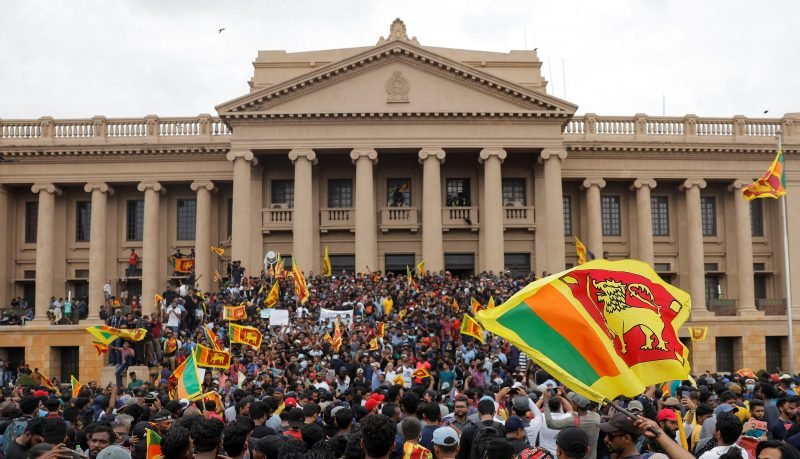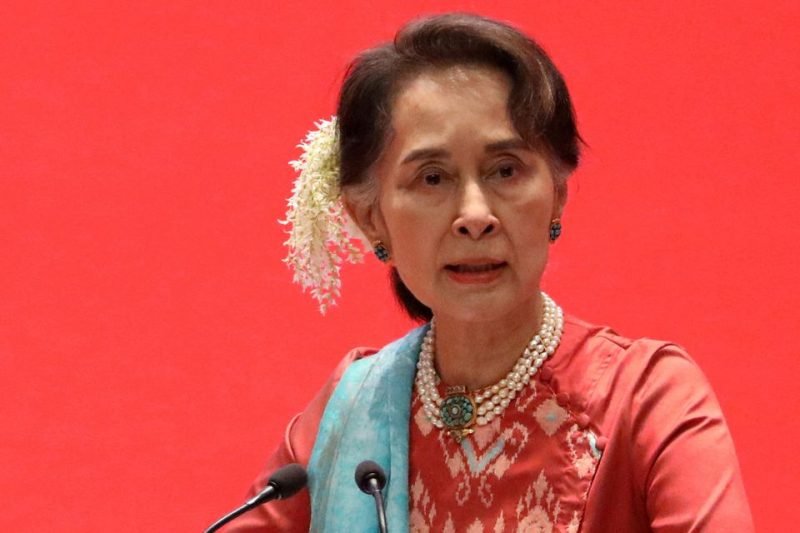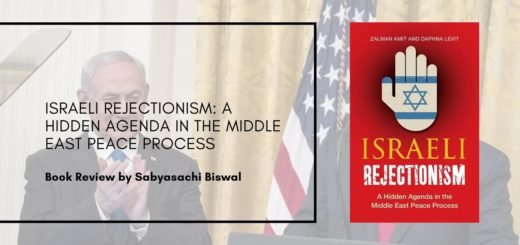The Perils Of Democracy In South Asia

The horrific saga of the ‘protestors’ storming the presidential palace in Sri Lanka is a memory that lacks precedence. For many, the act of setting ablaze PM Wickremasinghe’s residence was an apt metaphor of the change brought through fire in a forest that destroys everything and creates new foliage.
The immediate reason attributed for the chaos was the foreign currency crisis and poverty and shortages that made the protests more intense. The whammy of easter bombing coupled with covid-19 destroyed the island nation’s lifeline-the tourism industry. Short of essentials, soon queues piled up leading to swarms of protests effectively leading to the storming. The current political future of the island nation remains uncertain as the hobbling of coalition and wobbling of political forces continues.
While it is true that the fuel to the fire came from the economic chaos rooted in misgovernance and maladministration, a large part is also due to what can be summed up as ethnic nationalism of the Sinhalese majority towards the minorities. Ever since the British left Ceylon, what it was called back then, the strife between the majority and minority had systematically increased which manifested with the Rajapaksa brothers in power. Once hailed as heroes when the Tamil movement was crushed, the brothers have fallen from grace and were systematically thrown out of power. The nation is on the cusp of strife again.

A few months back on august 15th Americans left Afghanistan after failing to prevent a Taliban takeover. At the outset, it may appear a victory for a terrorist organization over the strongest army on the planet linking it with how Saigon fell during the Vietnam war. Digging deeper one can find that, it was in large part due to the lack of representation and mishandling of people’s concerns by the government in Kabul that aided people to turn to the Taliban despite knowing full well that a Taliban government would undo a lot of rights that they enjoy in American regime. Craig Whitlock in his book- The Afghanistan Paper effectively argues that Americans going in to Afghanistan without a plan and the installation of an inimical regime in Kabul prompted an easy return of Taliban to power.
A few months back from that, on 1st February 2021, the Burmese junta overturned the result of a national election that gave Aung San Suu Kyi’s national league for democracy a thumping majority in the name of election anomalies. Ever since the junta is ruling the nation with an iron fist while the democratic leaders languishes in jail. Suu Kyi flirts with Buddhist nationalism while attempting to stay quiet during the Rohingya crisis added fuel to the Tatmadaw’s insecurities with Suu Kyi’s growing popularity and ipso facto its own downfall. The Tatmadaw had ever since successfully stemmed all opposition both within and outside.
The three nations of Sri Lanka, Afghanistan and Myanmar apart from being located in the same geography offer a unique similarity in the current form. All were some forms of democracy that changed into either autocracy or unbridled chaos. After winning the second world war, the least Prime Minister Winston Churchill expected was to be voted back to power. Instead, he was thrown out and Atlee became the PM. He vituperatively or sorrowfully regarded democracy to be the world’s worst form of govt except all others have been tried. The idea of democracy- a ‘gift’ from the west post decolonization has its own misgivings in the current form it exists in the region.

It certainly gives people’s voices but the cynicism undercutting the society attributed to its ethnic history is at best left unaddressed by democracy. In almost six decades of its existence in the region, it has still not being able to permeate well in the south asian.in south Asia it still is a borrowed institution from the west where the people elect their leaders based on policy propositions and are often shown the door no matter how popular they are, Exhibit A Winston Churchill.
In South Asia, it leads to people unworthy of the high office, it leads to kleptocrats usurping the power n the name of sentiments, happened in Sri Lanka, where riding high on the sentiments Rajapaksa clan made its way to Aragalaya or worse, puppets are installed by a hegemon in the name of promotion of democracy, the likes of Ghani and Karzai. Often pure intentions doesn’t suffice enough as intentions needs to be supplemented by critical actions in cases where one’s hands are tied, its just not possible. As an idea it had threatened the military class, the defacto ruler once the British left in south Asia about cession of power. Be it Pakistan or Myanmar, the army is deeply suspicious of the intention of the ruling establishment and covertly and overtly attempts to run the show by themselves
the history of south Asia is critical to understanding the perils of democracy in the region. As a region, it was a British colony unknown to democracy as it was divided into small principalities with self-rule. Once integrated it was spun in the thread of democracy artificially by the Brits which continues to break even today. The region is divided on many counts and creeds, ethnicities are just the tip. The western model of democracy has not been able to survive in its original form except in India. while India continues to be a functional democracy, the nations around are crumbling. Do they need a new idea of governance? Maybe yes. An idea that supplements the inherent governance structures of the society and complements people’s development. Democracy is a very good system in the sense it gives precedence to people’s wishes and articulates a nation’s vision the same but it has some constraints and especially in south Asia, these constraints often metastasize into perils of democracy troubling the nation’s existence and impinging on region’s stability.


















